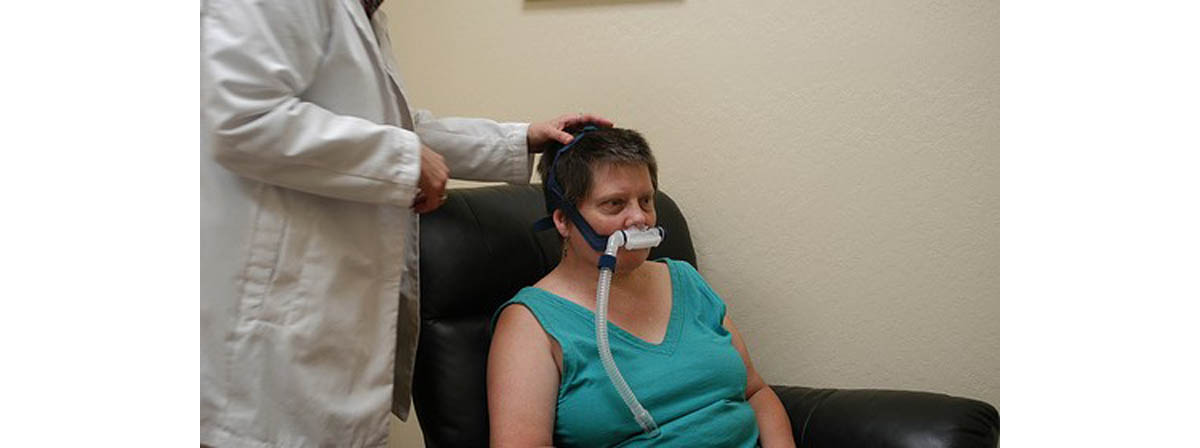Table of Contents
Over the years, medical researchers have made a number of observations about people who have obstructive sleep apnea. Sufferers of obstructive sleep apnea typically:

- Weigh more. It's relatively rare for a morbidly obese or even moderately obese person not to suffer sleep apnea.
- Have high blood pressure. People who have sleep apnea are about 30% more likely to be on drugs for hypertension.
- Have to use inhalers for asthma. About twice as many people who have sleep apnea have to use asthma inhalers.
- Take statin drugs for high cholesterol (or because they have had a heart attack even if they don't have "high" cholesterol).
- Smoke. People who have sleep apnea are about four times more likely to be smokers than people who do not.
- Take thyroid medication. People who have sleep apnea are about twice as likely to take Synthroid thyroid replacement hormone.
- Don't use any kind of hormone replacement. There's a 5 to 1 difference in the use of estrogen and testosterone replacement therapy among people who don't have sleep apnea and people who do.
- Among women, aren't on the Pill. There's a 6 to 1 difference in the use of the Pill for contraception among women who don't have sleep apnea and women who do.
The picture that emerges is that people who have obstructive sleep apnea should also tend to have diabetes, but do they really? A group of researchers in the USA, Italy, and Germany called the Sleep Extension Study Group and the Sleep Extension Study Group tested this idea by recruiting people who had sleep apnea to be tested for insulin resistance with a very simple method most doctors ignore. They tested blood sugar levels after meals as well as fasting blood sugar levels taken before breakfast.
The researchers in three countries found that the worse the sleep apnea, the higher the blood sugar spikes after meals. These "post-prandial" blood sugar spikes are particularly dangerous because they cause muscle and fat cells to "shut down" their responses to insulin. In turn, the pancreas makes more insulin to transport the same amount of glucose from digested food, and the muscle and fat cells shut down even more insulin receptors. Insulin resistance gets worse and worse. Eventually the pancreas just cannot make enough insulin to keep up with rising blood sugar levels and even fasting blood sugar levels, the blood sugars taken first thing in the morning, are obviously high. In most type 2 diabetics, however, blood sugar abnormalities after meals are apparent years before fasting blood sugars, the blood sugars doctors usually test, are abnormally high.
The researchers found that there is a way to stop the downward spiral of sleep apnea, insulin resistance, and diabetes. Correct the sleep apnea, and you correct the diabetes. It isn't about sleeping more, but it is about sleeping better, with fewer interruptions of sleep due to snores, snorts, tossing, and turning. When breathing is continuous throughout the night, the adrenal glands put our fewer stress hormones, the immune system produces less inflammation, and maybe--or maybe not--weight goes down. But whether obstructive sleep apnea is treated with CPAP or with weight loss, or both, with better breathing, blood sugar regulation also improves.
- Cizza G, Piaggi P, Lucassen EA, de Jonge L, Walter M, Mattingly MS, Kalish H, Csako G, Rother KI
- Sleep Extension Study Group. Obstructive sleep apnea is a predictor of abnormal glucose metabolism in chronically sleep deprived obese adults. PLoS One. 2013 May 29. 8(5):e65400. doi: 10.1371/journal.pone.0065400. Print 2013. PMID: 23734252.
- Gilardini L, Lombardi C, Redaelli G, Vallone L, Faini A, Mattaliano P, Parati G, Invitti C. Glucose tolerance and weight loss in obese women with obstructive sleep apnea. PLoS One. 2013 Apr 17. 8(4):e61382. doi: 10.1371/journal.pone.0061382. Print 2013.
- Photo courtesy of Nicole Mays by Flickr : www.flickr.com/photos/mnicolem/2700316971/
- Photo courtesy of Michelle Ress by Flickr : www.flickr.com/photos/safoocat/1384616196/


Your thoughts on this